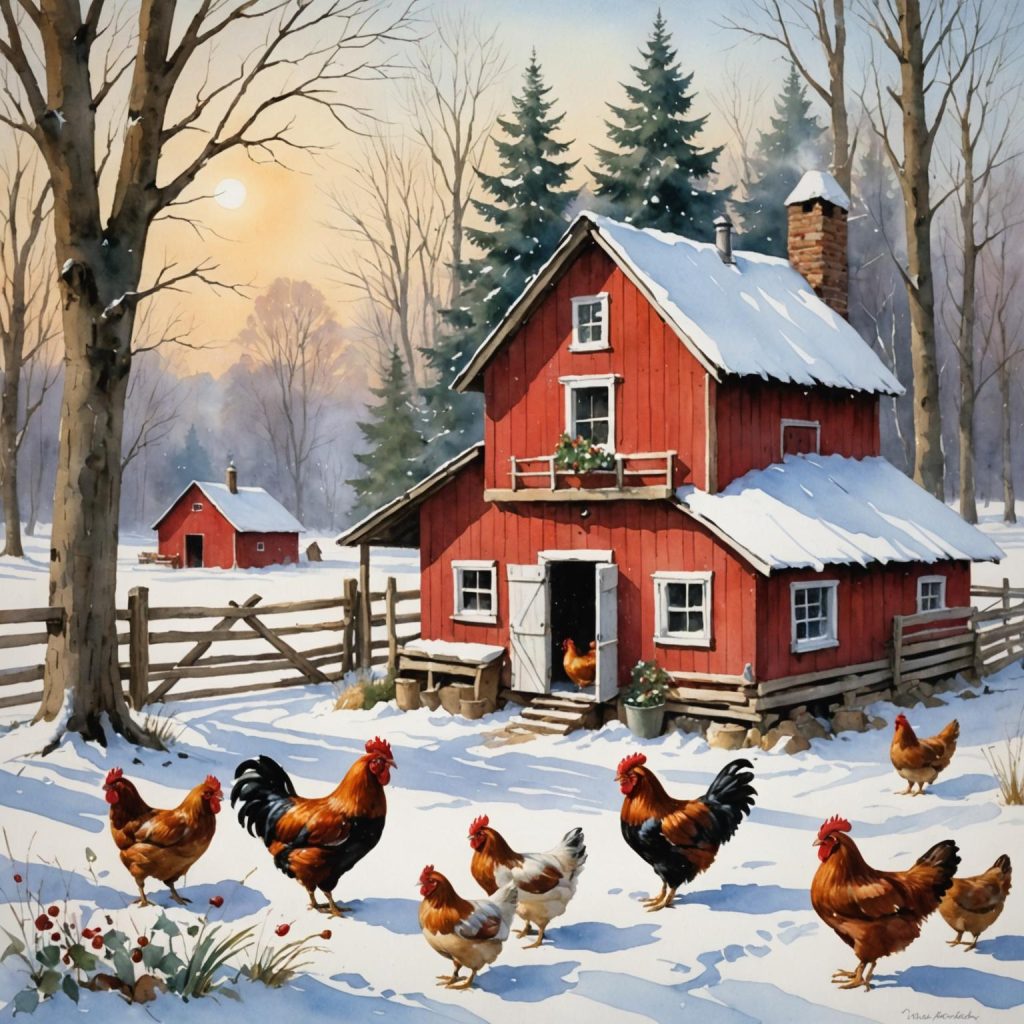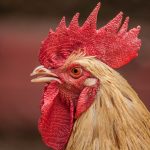Chickens, like all animals, have specific needs that must be met in order for them to thrive, especially during the winter months. Understanding these needs is crucial for ensuring the health and well-being of your flock. In winter, chickens require a warm and dry environment to protect them from the cold and damp conditions. They also need access to fresh water and a balanced diet to maintain their energy levels and immune system. Additionally, chickens benefit from enriching activities to keep them mentally and physically stimulated during the long, dark days of winter. By understanding and addressing these needs, you can help your chickens stay healthy and happy throughout the winter.
Chickens are sensitive to cold temperatures and can suffer from frostbite and hypothermia if not provided with adequate shelter. In addition to warmth, chickens also need protection from drafts and dampness, which can lead to respiratory issues. It’s important to provide a cozy and insulated coop that offers protection from the elements. Furthermore, chickens require access to fresh water at all times, as dehydration can occur even in cold weather. A balanced diet is also essential for maintaining their health and energy levels during the winter months. By understanding and addressing these needs, you can ensure that your chickens are well-equipped to handle the challenges of winter.
Table of Contents
- 1 Creating a cozy and insulated coop
- 2 Providing extra warmth with bedding and heat sources
- 3 Ensuring proper ventilation and air circulation
- 4 Offering enriching activities for chickens during the winter
- 5 Monitoring and adjusting the coop environment as needed
- 6 Tips for keeping chickens healthy and happy throughout the winter
Creating a cozy and insulated coop
Creating a cozy and insulated coop is essential for keeping chickens comfortable and healthy during the winter months. Insulation helps to retain heat and prevent drafts, while also providing a barrier against moisture. This can be achieved by using materials such as straw, hay, or wood shavings to line the coop floor and nest boxes. Additionally, adding extra bedding to the roosting area can provide additional warmth for the chickens during the night. It’s also important to ensure that the coop is well-ventilated to prevent moisture buildup, which can lead to respiratory issues. By creating a cozy and insulated coop, you can help your chickens stay warm and dry throughout the winter.
In addition to insulation, it’s important to provide adequate space for your chickens to roost and move around comfortably. Overcrowding can lead to stress and aggression among the flock, so it’s important to provide enough space for each chicken to roost and move around freely. This can be achieved by providing multiple roosting bars at different heights, as well as ensuring that the coop is large enough to accommodate the entire flock. By creating a cozy and insulated coop with plenty of space, you can help your chickens stay comfortable and healthy throughout the winter.
Providing extra warmth with bedding and heat sources
In addition to insulation, providing extra warmth with bedding and heat sources can help keep chickens comfortable during the winter months. Adding extra bedding to the coop floor and nest boxes can provide insulation and warmth for the chickens, especially during the night when temperatures drop. Materials such as straw, hay, or wood shavings can be used to create a cozy and comfortable environment for the flock. Additionally, adding heat sources such as heat lamps or heated pads can provide additional warmth for the chickens during particularly cold spells. By providing extra warmth with bedding and heat sources, you can help your chickens stay comfortable and healthy throughout the winter.
It’s important to note that while heat sources can provide additional warmth, they should be used with caution to prevent fire hazards and overheating. Heat lamps should be securely mounted and positioned away from flammable materials, and heated pads should be used according to manufacturer’s instructions. Additionally, it’s important to monitor the temperature in the coop regularly to ensure that it remains within a safe range for the chickens. By providing extra warmth with bedding and heat sources in a safe and responsible manner, you can help your chickens stay comfortable and healthy throughout the winter.
Ensuring proper ventilation and air circulation
Proper ventilation and air circulation are essential for maintaining a healthy environment for chickens during the winter months. While it’s important to keep the coop warm and insulated, it’s equally important to ensure that there is adequate airflow to prevent moisture buildup and respiratory issues. This can be achieved by providing vents or windows that can be opened or closed as needed to regulate airflow. Additionally, it’s important to keep bedding dry and clean to prevent mold and mildew from forming, which can lead to respiratory issues for the chickens. By ensuring proper ventilation and air circulation, you can help your chickens stay healthy and comfortable throughout the winter.
In addition to ventilation, it’s important to keep the coop clean and free of debris that can obstruct airflow. Regularly cleaning out bedding and removing droppings can help maintain a healthy environment for the flock. It’s also important to monitor humidity levels in the coop, as excessive moisture can lead to respiratory issues for the chickens. By ensuring proper ventilation and air circulation, you can help your chickens stay healthy and comfortable throughout the winter.
Offering enriching activities for chickens during the winter
Enriching activities are important for keeping chickens mentally and physically stimulated during the long, dark days of winter. Chickens are naturally curious and active animals, so providing them with opportunities for enrichment can help prevent boredom and stress. This can be achieved by providing items such as perches, dust baths, or hanging treats that encourage natural behaviors such as scratching, pecking, and roosting. Additionally, providing access to outdoor areas or covered runs can give chickens opportunities for exercise and exploration even in cold weather. By offering enriching activities for chickens during the winter, you can help keep them happy and healthy.
In addition to physical activities, mental stimulation is also important for keeping chickens engaged during the winter months. This can be achieved by providing items such as mirrors or hanging toys that encourage curiosity and exploration. Additionally, providing opportunities for social interaction among the flock can help prevent boredom and stress. By offering enriching activities that cater to both physical and mental stimulation, you can help keep your chickens happy and healthy throughout the winter.
Monitoring and adjusting the coop environment as needed
Monitoring and adjusting the coop environment as needed is essential for ensuring that chickens stay comfortable and healthy throughout the winter months. This includes regularly checking temperature, humidity levels, ventilation, and cleanliness in the coop. It’s important to monitor temperature fluctuations in the coop to ensure that it remains within a safe range for the chickens. Additionally, monitoring humidity levels can help prevent moisture buildup that can lead to respiratory issues. Regularly cleaning out bedding and removing droppings can also help maintain a healthy environment for the flock. By monitoring and adjusting the coop environment as needed, you can help ensure that your chickens stay comfortable and healthy throughout the winter.
In addition to environmental factors, it’s also important to monitor the health and behavior of your flock regularly. This includes observing their eating habits, activity levels, and overall demeanor. Any changes in behavior or appearance should be addressed promptly to prevent potential health issues from developing. By monitoring and adjusting the coop environment as needed, you can help ensure that your chickens stay comfortable and healthy throughout the winter.
Tips for keeping chickens healthy and happy throughout the winter
In addition to addressing their specific needs during the winter months, there are several tips for keeping chickens healthy and happy throughout this season. Providing a balanced diet that includes plenty of protein and nutrients is essential for maintaining their energy levels and immune system during cold weather. Additionally, ensuring access to fresh water at all times is crucial for preventing dehydration even in cold temperatures. It’s also important to provide opportunities for exercise and mental stimulation through enriching activities such as perches, dust baths, or hanging treats.
Regularly monitoring their health and behavior is also important for catching any potential issues early on before they become more serious. This includes observing their eating habits, activity levels, and overall demeanor on a daily basis. Any changes in behavior or appearance should be addressed promptly by consulting with a veterinarian if necessary.
In conclusion, understanding the needs of chickens in winter is crucial for ensuring their health and well-being during this challenging season. By creating a cozy and insulated coop with proper ventilation, providing extra warmth with bedding and heat sources, offering enriching activities for mental and physical stimulation, monitoring and adjusting the coop environment as needed, and following tips for keeping chickens healthy throughout the winter, you can help your flock stay comfortable and happy despite the cold weather. With proper care and attention to their specific needs, your chickens can thrive even in the harshest of winter conditions.
Meet Walter, the feathered-friend fanatic of Florida! Nestled in the sunshine state, Walter struts through life with his feathered companions, clucking his way to happiness. With a coop that’s fancier than a five-star hotel, he’s the Don Juan of the chicken world. When he’s not teaching his hens to do the cha-cha, you’ll find him in a heated debate with his prized rooster, Sir Clucks-a-Lot. Walter’s poultry passion is no yolk; he’s the sunny-side-up guy you never knew you needed in your flock of friends!







